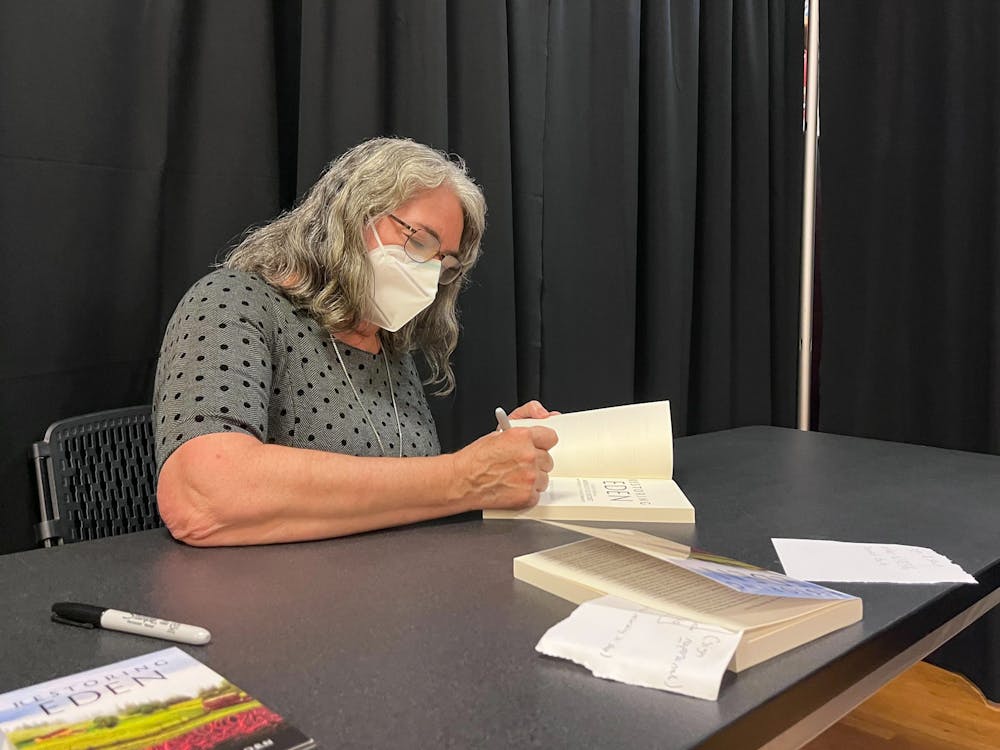Elizabeth Hilborn knew that something was wrong when she saw something strange in the wetland on her central North Carolina fruit farm. After a flood in spring 2017, she said it was eerily silent, with insects dead, frogs quiet and a thick gray muck on the surface of the water.
Then, it got worse.
“The bats left the skies," Hilborn said. "My garden started failing due to lack of pollination. When I walked along the path to my farm, I was totally alone. There was no movement around me.”
Hilborn, an environmental health scientist and honey bee specialist veterinarian, felt an obligation to use her experience to try to figure out what was happening on her farm. Her new book "Restoring Eden," which Hilborn discussed on Thursday at Flyleaf Books, documents that saga.
After reaching out to neighbors, colleagues and specialists, Hilborn came up with a list of contaminants she wanted chemists to test the water for. She eventually narrowed in on one culprit: a class of pesticides known as neonicotinoids.
Neonicotinoids are used widely in U.S. agriculture, and environmentalists like Hilborn are particularly concerned with how they are used to coat seeds, which makes the entire plant toxic to insects. The wide use of these pesticides, developed in the 1990s, has been linked to a decline in pollinator populations.
The European Union enforces a ban on neonicotinoid-coated seeds. Elley Schopler, one of Hilborn’s neighbors who attended the event at Flyleaf Books, said that on a recent trip to Germany she saw many more bugs than she usually sees in the United States.
“It was so noticeable," Schopler said. "A giant difference. If you look at bug splatter on your car when you’re driving — I sound so old — but when we grew up there was lots of bug splatter on the windshield.”
In the eyes of U.S. regulators, seeds coated with neonicotinoids are “treated articles,” meaning they do not fall under federal regulations targeting pesticides. Ten states have passed some regulations on neonicotinoids, with New York going the furthest by banning neonicotinoid-coated corn, soybean and wheat seeds by 2027.



